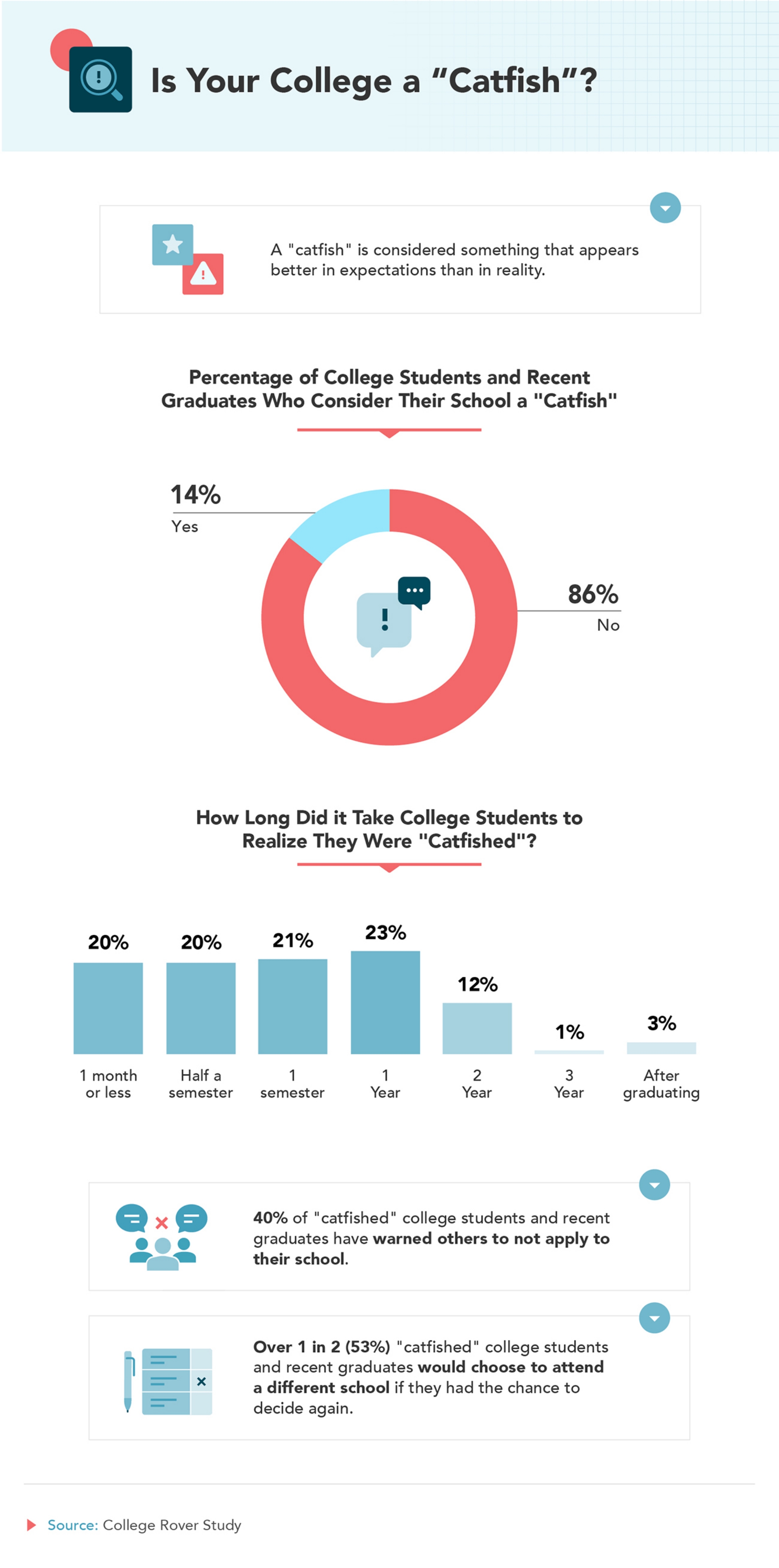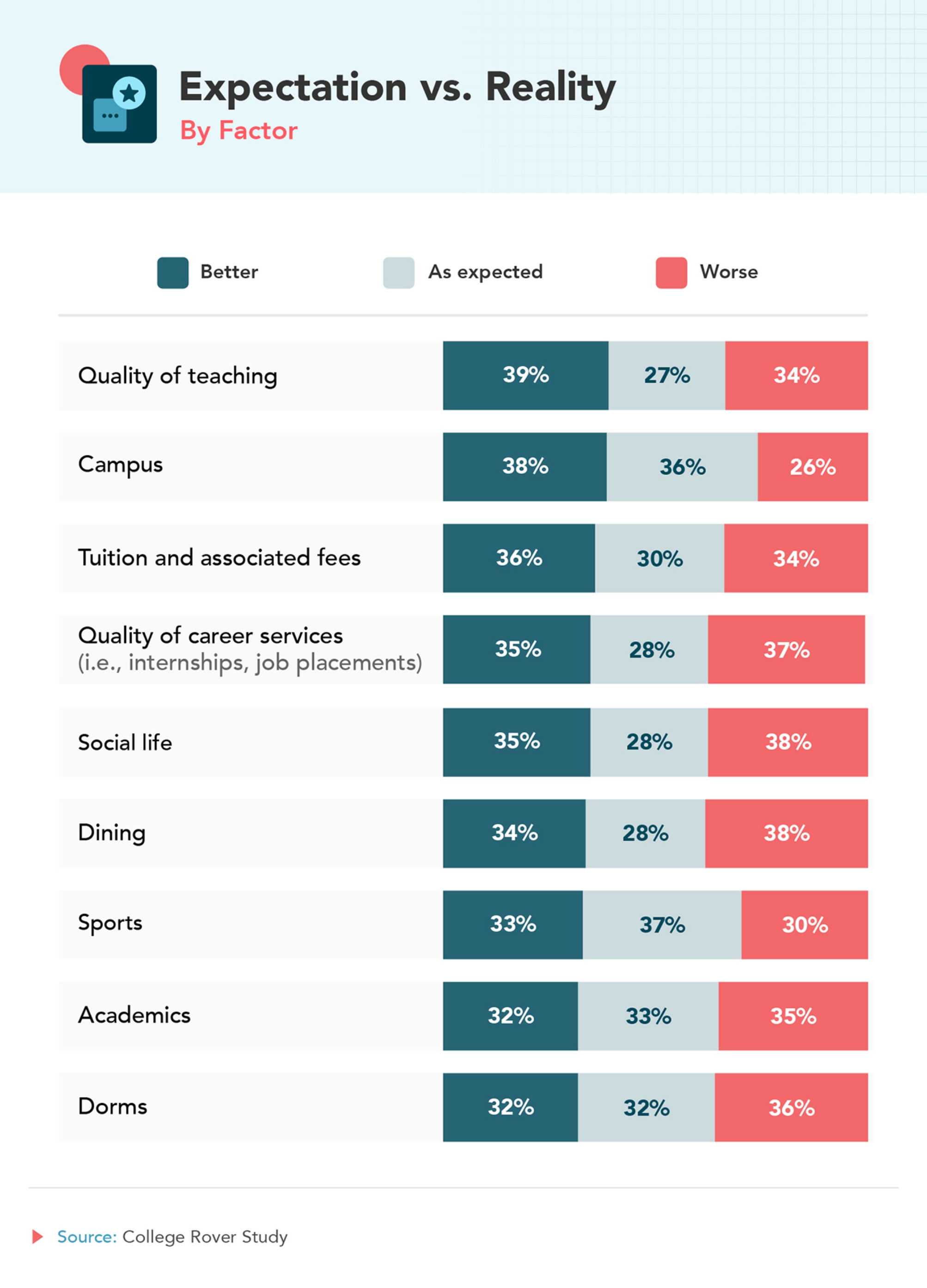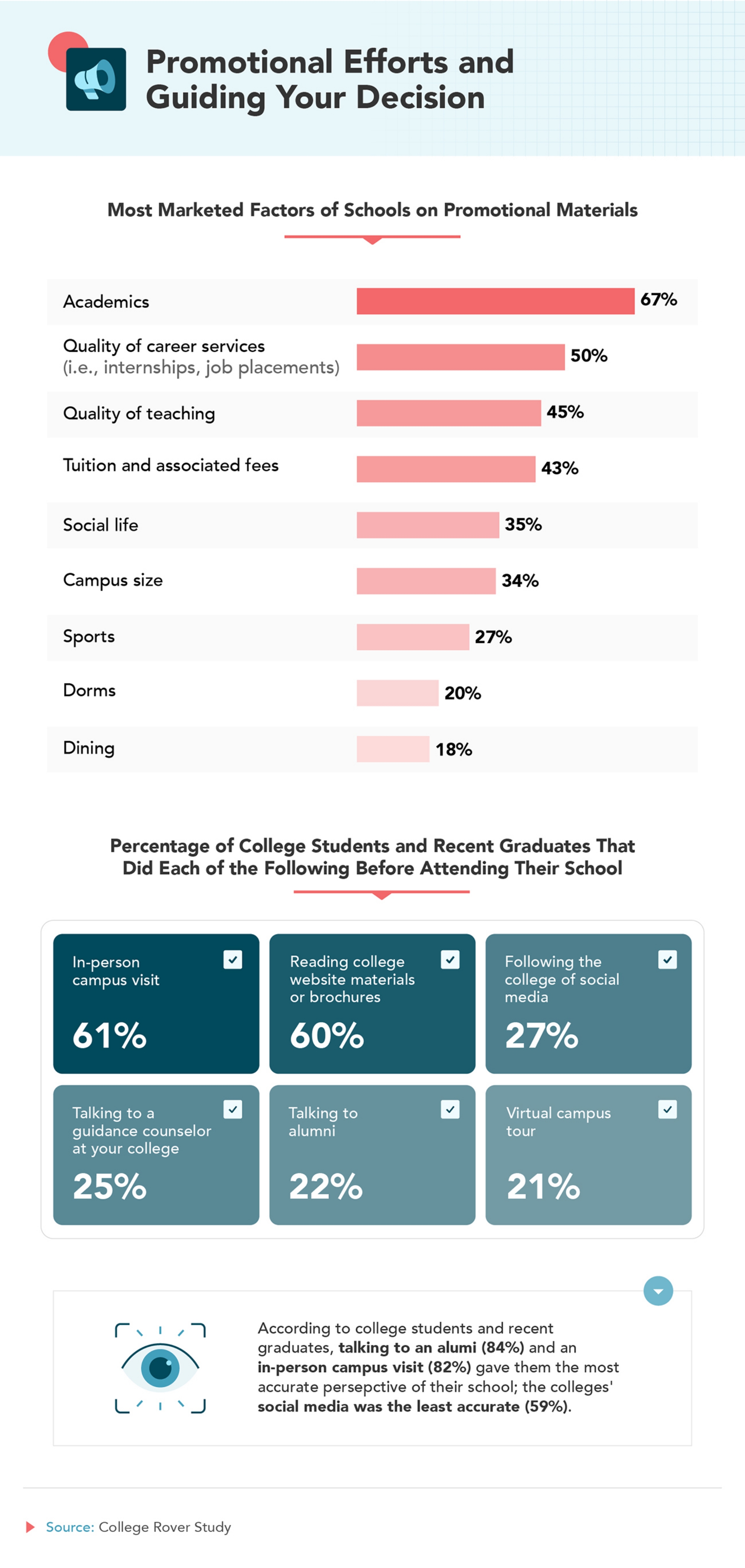Getting "catfished" isn't just for dating apps - it happens in college, too. Some schools promise the world through glossy brochures and slick social media marketing, only for students to arrive and feel duped. From disappointing dorms to underwhelming academics, the disconnect is real. We surveyed 791 students and recent grads to find out how often colleges fail to meet expectations, why it happens, and what students wish they had known before enrolling.
Key takeaways
- 14% of college students and recent graduates consider their school a catfish.
- 61% of them realized they were catfished within their first semester.
- 40% of catfished college students and recent graduates have warned others not to apply to their schools.
- Over 1 in 2 catfished college students and recent graduates (53%) would choose to attend a different school if they had the chance to decide again.
- Nearly 2 in 5 college students and recent graduates attended their school without taking an in-person campus visit.
When college expectations don't match reality
First impressions aren't everything, but they often set the tone for what to expect. Unfortunately, some college students and recent grads quickly realized their college experience wasn't exactly as advertised. Here's what they had to say about their catfishing experiences.

It turns out that 14% of current and recent college students believed their school pulled a bait-and-switch and "catfished" them. This feeling was particularly strong among students at liberal arts colleges, with 28% calling their school a catfish. As for majors, students studying communications (32%), cybersecurity (30%), and computer science (19%) were the most likely to feel duped.
For most students, the mask came off quickly - 61% of those who felt catfished realized it within their first semester. And they weren't shy about spreading the word. Nearly 40% of catfished students warned others not to apply to their school, with private school attendees the most likely to have done so (50%).
When asked about regrets, over half of catfished students (53%) said they would attend a different college if given the chance to make the choice again. Only 10% of students who didn't feel catfished felt this way.
What colleges get right - and where they miss the mark
Colleges often promise an unforgettable experience, but not everything lives up to the hype. Some aspects of campus life surprise students in a good way, while others fall frustratingly short. Here's a closer look at where colleges excel and where they flop.

For some students and graduates, their college exceeded expectations. The quality of teaching was the most commonly praised aspect, followed by campus aesthetics and, shockingly, even tuition and fees. On the flip side, social life topped the list of factors that disappointed students, with dining options and quality of career services not far behind.
When it came to predictability, some factors played out exactly as advertised. Sports, college campuses, and academics were the most likely to meet student expectations without any major surprises.
How marketing shapes student expectations
Colleges know how to sell themselves, but how much of what they promote aligns with reality? This section focuses on how students' pre-enrollment experiences, from marketing materials to campus visits, shaped their understanding of their school.

According to students and recent grads, academics, career services, and teaching quality were the most marketed features of colleges. Surprisingly, nearly 2 in 5 students enrolled without making an in-person campus visit, which may be a contributing factor to feeling catfished.
When students needed to know more details, firsthand experiences made all the difference. Talking to alumni (84%) and touring the campus in person (82%) gave students the clearest picture of what their school had to offer. Social media, however, proved to be the least reliable, with only 59% of students finding it accurately reflected their college experience.
Do your research
For some students, college wasn't the dream they were promised - it was a reality check. Mismatched expectations led to regrets, warnings to others, and a desire for a do-over. While some aspects of college life still managed to impress, many students found that flashy marketing and limited campus visits left them blindsided. As colleges continue to sell their "perfect" experience, it's clear that future students need to dig deeper, ask the right questions, and rely on firsthand experiences to avoid being catfished by a school.
Methodology
We surveyed 791 college students and recent graduates (those who graduated college within the last 5 years) about their thoughts on their college experience. Among the respondents, 544 were current college students, and 247 were recent college graduates. Some percentages in this study may not total 100% due to rounding.
About College Rover
At College Rover, we're here to simplify your college search. Our comparison tool lets you compare schools by important factors like tuition costs, acceptance rates, and graduation numbers. We focus on providing straightforward and fair information to help you confidently pick the perfect college for you.
Fair use statement
You're welcome to use this data for noncommercial purposes, provided you include a link back to the original page.






















